
 Dr. Rashi Bahuguna
Dr. Rashi Bahuguna
Covishield Vaccine - Dosage and Side effects
ChAdOx1 nCoV or Covishield is a recombinant vaccine against the COVID-19 virus developed by Oxford University and AstraZeneca and manufactured by the Serum Institute of India Pvt. Ltd, on 15 February 2021.
The product consists of genetically modified organisms (GMOs) that is replication-deficient chimpanzee adenovirus with SARS-COV- 2 spike protein gene incorporated and produces S-antigen protein that is specific to SARS-COV-2 to generate immunity against COVID-19 virus.
WHO approved the vaccine for emergency use during the pandemic.
Dosage of Covishield
Covishield vaccine is administered in 2 doses that must be given at a separation of minimum 28 days and maximum 56 days.
The efficacy of the immune response after the second dose of the vaccine is found to rise if taken after 42 days of the first dose.
What the Patient has to mention to the Health Care Professional before Vaccine Administration
1. If the patient is having an allergic reaction due to food, drug, vaccine, or any ingredient of the vaccine.
2. If the patient is suffering from fever.
3. If the patient is having any bleeding disorder like hemophilia or is on any anticoagulant or blood thinner therapy.
4. If the patient is immunocompromised and receiving any type of medication that affects the immune system example immunosuppressants in organ transplantation.
5. Pregnant females.
6. Breastfeeding females.
7. If a patient received any other COVID-19 vaccine.
Side Effects of the Vaccine
First Dose Side Effects
1. Very Common Side Effects
a. Tenderness, pain, warmth, redness, itching, swelling, or bruising at
b. Generally feeling unwell at the site of injection.
c. Fatigue
d. Chills and fever
e. Headache
f. Nausea
g. Joint pain or muscle ache
2. Common Side Effects
a. A lump at the site of injection
b. Fever
c. Vomiting
d. Flu-like symptoms, such as high temperature, sore throat, runny nose, cough and chills
3. Uncommon
a. Dizziness
b. Loss of appetite
c. Pain in abdomen
d. Enlarged Lymph nodes
e. Excessive sweating, itchy skin, or rashes
Second Dose Side Effects
The intensity of the side effects increases after the second dose.
1. Very Common Side Effects
The severity of the following symptoms increases after second dose
a. Tenderness, pain, warmth, redness, itching, swelling or bruising at
b. Generally feeling unwell at the site of injection.
c. Fatigue
d. Chills and fever
e. Headache
f. Nausea
g. Joint pain or muscle ache
2. Common Side Effects
a. A lump at the site of injection
b. Fever
c. Vomiting
d. Flu-like symptoms, such as high temperature, sore throat, runny nose, cough, and chills
Special Warnings & Precautions
1. Population of the Elderly
The vaccine's safety and efficacy have been studied in people over the age of 65, and there is no need to adjust the dose in these patients.
2. Paediatric population
Since the protection and efficacy results on patients under the age of 18 years are yet to be analysed and identified, vaccination of the paediatric population should be avoided to avoid any adverse effects or events.
3. Hypersensitivity Reactions
Patients who receive the vaccine should be closely watched since any component in the vaccine can cause an allergic or anaphylactic reaction after administration.
4. Concurrent illness
Patients with acute serious febrile disease should not be vaccinated because it could exacerbate their condition, which may be fatal; however, mild infections such as a cold or low-grade fever should be vaccinated as soon as possible.
5. Coagulation disorders & Thrombocytopenia
The vaccine should be provided with caution to patients who have thrombocytopenia, any coagulation disorder, or who are on anticoagulant therapy, as it can cause bleeding and bruising after intramuscular administration.
6. People with Weakened Immune Systems
Patients who are immunocompromised or on immunosuppressive therapy, such as in the case of organ transplantation Should avoid vaccination since the protection and effectiveness of the patients have not been studied, and it is unknown if such patients would have the same reaction as immunocompetent individuals. The vaccine and its regimen have a poor immune response in immunocompromised patients.
7. Breastfeeding and Pregnancy
Because the vaccine's safety and effectiveness in pregnant and breastfeeding women is unknown, and because vaccination of such women may be lethal to the infant or foetus, vaccination of such women should be avoided.
8. Vaccines given at the same time
Since the impact of using Covishield with other vaccines has not been tested in the population, the vaccine should not be used.
Covishield Vaccine Efficacy
The Covishield vaccine has been shown to be effective against symptomatic SARS-CoV-2 infection in 63.09% of cases. The efficacy of longer dose cycles within 8 to 12 weeks is also shown to be correlated with greater efficacy.
What is the Duration of the Covishield Vaccine?
Clinical trials on Covishield have shown that the vaccine can prevent Covid-19 infection after two doses given over a four-to-six-week period. Covishield's period of action is unknown at this time, but it offers a 4-week immune response after the second dose.
Effect of Covishield on SARS-COV-2 Variants & Mutant Strains
The SARS-COV-2 virus is constantly mutating as a result of its global dissemination and distribution, and as a result, various types of variants continue to evolve in the population.
These variants can be more transmissible, cause more serious disease, and have been linked to re-infection and antigen composition changes.
The new clinical trials will look at whether the Covishield vaccine has a decreased effect on the B1.1.1.7 variant, as well as whether there is a reduction in effect in mild to moderate disease due to the B1.351 variant. As a result, due to alt, continuous monitoring of the vaccine effect on new variants is needed.
Precautions to take when Administering Vaccines
1. Patients are advised to follow government guidelines for COVID-29 protection, such as wearing masks, social distancing, and hand sanitization, before, during, and after vaccination.
2. The vaccine should not be given to anyone who has signs and symptoms of COVID-19. Only those who have healed or have not been sick may be vaccinated.
3. COVID-19 testing should not be done prior to vaccine administration.
4. Healthcare workers should inform vaccine recipients about the vaccine's potential side effects and how to treat them. The patient should be monitored for 15 minutes after vaccination.
5. The side effects of the vaccine should be treated with antipyretics and analgesics like paracetamol.
6. The individual receiving vaccine should complete the vaccination dose for better protectio


.jpg)
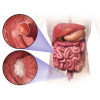
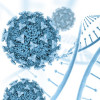
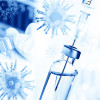
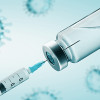
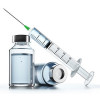
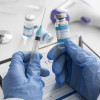
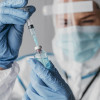
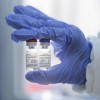
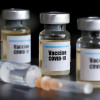
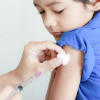
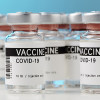
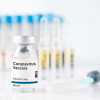

Please login to comment on this article